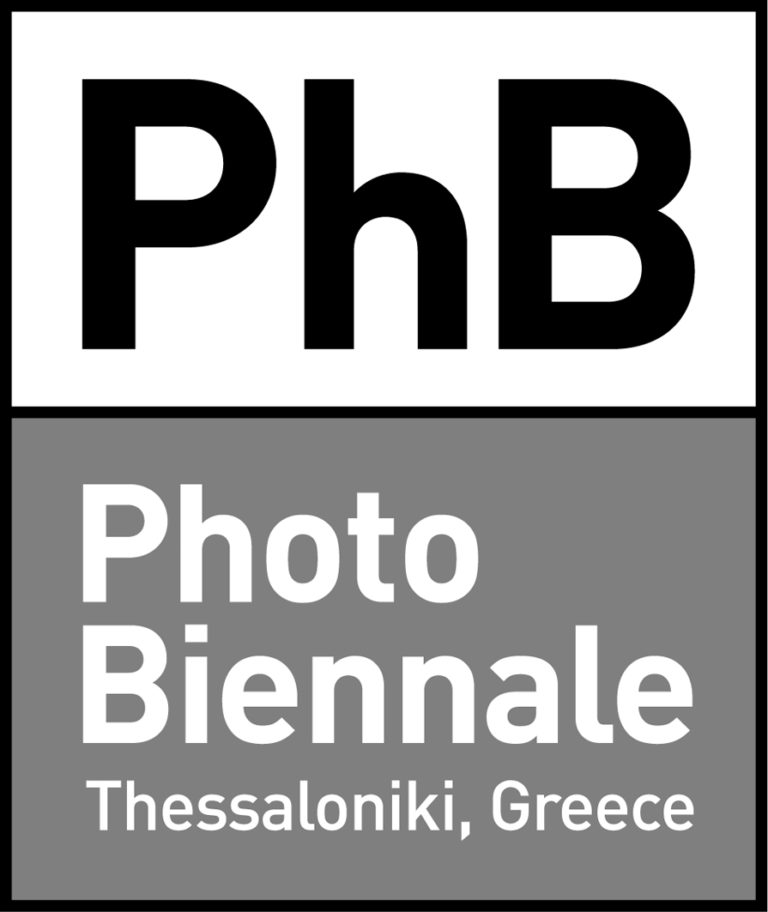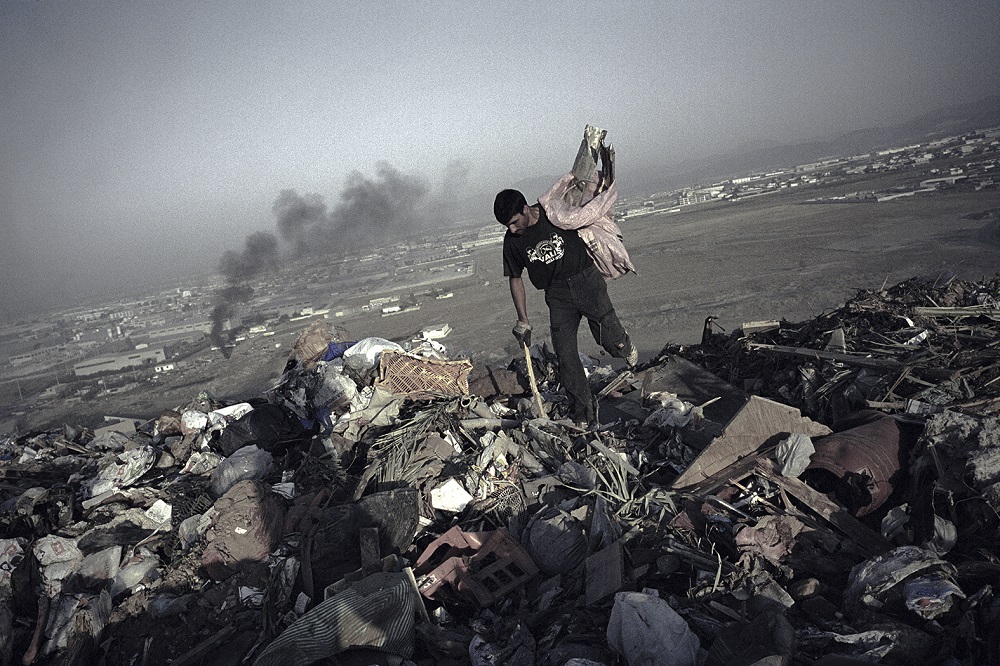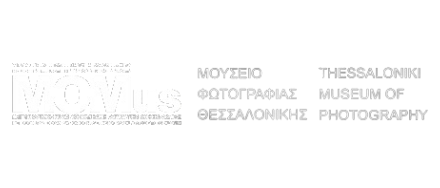In a concerted, long-term project, Dimitris Michalakis has documented the impact of the 2007-8 global financial crisis on
Greece as austerity was imposed on the country: widespread unemployment and homelessness, the fall of a quarter of the
population into poverty, the disintegration of healthcare and other public services. The human costs as wrought on those
people who appear in his photographs are seen in their bodies, actions, gestures and expressions. For example, the old and
weather-beaten man who has lost a leg sits below his many icons, awaiting a better life beyond this world; a scavenger picks through a massive open rubbish dump, a plastic bag appearing as a ragged cloak, while a toxic-looking fire burns in the background.
People did not take this punishment without protest, of course, and demonstrations—some of them violent—became endemic in Athens, and were put down with batons, stun grenades and tear gas. Michalakis has compared the social crumbling of Greece, and the febrile political atmosphere that resulted, to the crises of Weimar Germany or the Great Depression.
Michalakis is clear about where the blame lies, writing that governments, left and right, exist to serve a capitalism and a
ruling class which, when there is enough profit to be made, will stop at no crime or atrocity, however terrible. Any government
that departs too far from the script will meet the fate of Allende in Chile. ‘Capitalism is rotten and cannot be humane’, he states,
and no faith can be put in bourgeois democracy: the only solution is for workers to ‘struggle, rupture and overthrow.’
In his photographs, wreckage, refuse and dereliction serve as metonyms of the wider state of collapse as in the people fishing under a heavy grey sky in front of a shipwreck abandoned to rust away. In all of his work, Michalakis concentrates on the fate of the oppressed—whether Greeks bearing the weight of austerity, or those fleeing even worse situations in their desperate attempts to reach the EU. In colour and monochrome, he has evolved a bleakly effective photographic style which complements his concerns, etching dereliction and suffering into the minds of his viewers. Michalakis has also written of this vision of ongoing oppression: ‘Insecurity, fear, fatalism, individualism, rage and anger prevail against organisation, collectivity and solidarity.’ This has often been the narrative of our times—and not just in Greece.
–J.S.



